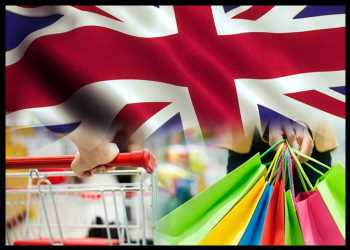UK Retail Sales Unexpectedly Rise Despite High Cost Of Living
UK retail sales grew unexpectedly in April despite consumer confidence sliding to a record low as soaring inflation boosted the cost of living further.
Retail sales expanded 1.4 percent monthly, reversing a revised 1.2 percent decline in March, data published by the Office for National Statistics showed Friday.
Sales were forecast to drop 0.2 percent in April.
Food store sales volumes gained 2.8 percent in April, mostly because of higher spending on alcohol and tobacco in supermarkets.
Meanwhile, non-food stores sales volumes fell 0.6 percent because of declines in other non-food stores.
Automotive fuel sales volumes increased 1.4 percent in April, following a fall of 4.2 percent decline in March when record increases in petrol prices impacted sales.
Retail sales, excluding auto fuel, also logged an unexpected monthly growth of 1.4 percent, in contrast to the 0.9 percent decrease in March and economists’ forecast of a 0.2 percent fall.
On a yearly basis, the retail sales volume decreased 4.9 percent after the 1.3 percent increase posted in March. Nonetheless, the pace of fall was slower than economists’ forecast of -7.2 percent.
At the same time, sales excluding auto fuel, declined 6.1 percent, following a 0.2 percent drop in March. Economists had expected an 8.4 percent decrease.
Elsewhere, survey results from the market research group Gfk showed that UK consumer confidence plunged to a record low in May as cost of living crisis increased amid surging inflation and rising interest rates.
The sentiment index slid two points to -40 in May.
While things are likely to get more difficult for consumers as the squeeze on households’ real incomes from higher inflation intensifies, the signs of resilience in economic activity in the retail sales data are encouraging, Nicholas Farr, an economist at Capital Economics, said.
However, the fall in consumer confidence has not caused consumer spending to collapse and this adds weight to the view that Bank of England will have to raise rates further to bring inflation back down to its 2.0 percent target, Farr added.
Source: Read Full Article



